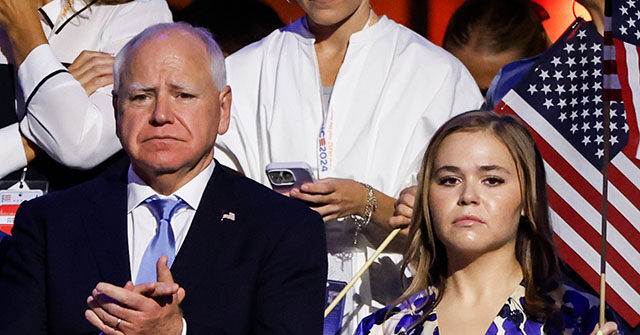In response to the recent presidential election results, Hope Walz, daughter of Minnesota Governor Tim Walz, made a heartfelt statement on social media, expressing her disappointment and her feelings regarding Vice President Kamala Harris’s role in the political landscape. In a TikTok video, she articulated her belief that the country “does not deserve” Harris, implying that the nation has not fully appreciated or supported her contributions. Hope emphasized that Harris should feel free to pursue her own happiness elsewhere, reflecting a sense of disillusionment with the current political climate. This commentary also serves as a broader critique of the systemic issues that have persisted within American politics, particularly surrounding the elevation and acknowledgment of women in leadership roles.
Hope took a moment to express her personal feelings of sadness and frustration, admitting that she was in a period of mourning for “what could’ve been.” Engaging with her audience, she shared her relatable moment of comfort — indulging in SpongeBob mac and cheese while watching a popular Netflix series — and her struggle to channel her emerging anger in a constructive way. Her unfiltered expression resonated with many, illustrating that beyond political ideologies, there is a human element to the experiences surrounding election outcomes. Hope’s reflections underscore the emotional toll that political events can have on individuals, particularly for those with strong personal ties to the political figures involved.
Moreover, Hope highlighted the significant role that Black women voters played in the recent election, acknowledging their impact while simultaneously lamenting that the broader political structure has often failed to recognize and support them adequately. Her emphasis on valuing and uplifting the voices of marginalized communities speaks to a critical conversation within political discourse about representation and equity. By aligning her feelings with the experiences of Black women, Hope’s message serves as a call to action for collective support and recognition in the spaces that matter most, especially in the aftermath of the election.
The timing of Hope’s message is particularly noteworthy as it comes amidst Donald Trump’s anticipated return to the presidency, marking a significant comeback in U.S. political history as he vies for electoral dominance once again. The dynamics of this election demonstrated the polarized state of American politics and the varying regional preferences reflected in the voting outcomes. While Trump did not secure a win in Minnesota as a whole, he captured key areas such as Blue Earth County, demonstrating his continued appeal in certain demographics despite statewide losses.
Harris won the overall vote in Minnesota by a margin that showcased her support; however, it was the narrowness of the results in localized areas that highlighted the complexities of political allegiances in the state. The numbers reveal how fragmented support is amongst different communities, necessitating a deeper examination of how political messages resonate across various groups. Hope’s commentary reflects a keen awareness of these nuances and the urgent need for more inclusive dialogues that genuinely reflect the diverse constituents that make up America.
Ultimately, Hope Walz’s impassioned commentary is a microcosm of the discontent and mixed feelings many Americans have in the wake of an election that has once again illustrated the deep divides within the nation. Her sentiments offer a personal glimpse into the frustrations felt by many who seek to champion transformative leadership and social justice. In the face of political tumult, her call for love, community, and solidarity emerges as a reminder of the importance of connection and mutual support during uncertain times as the country grapples with the political realities ahead.

